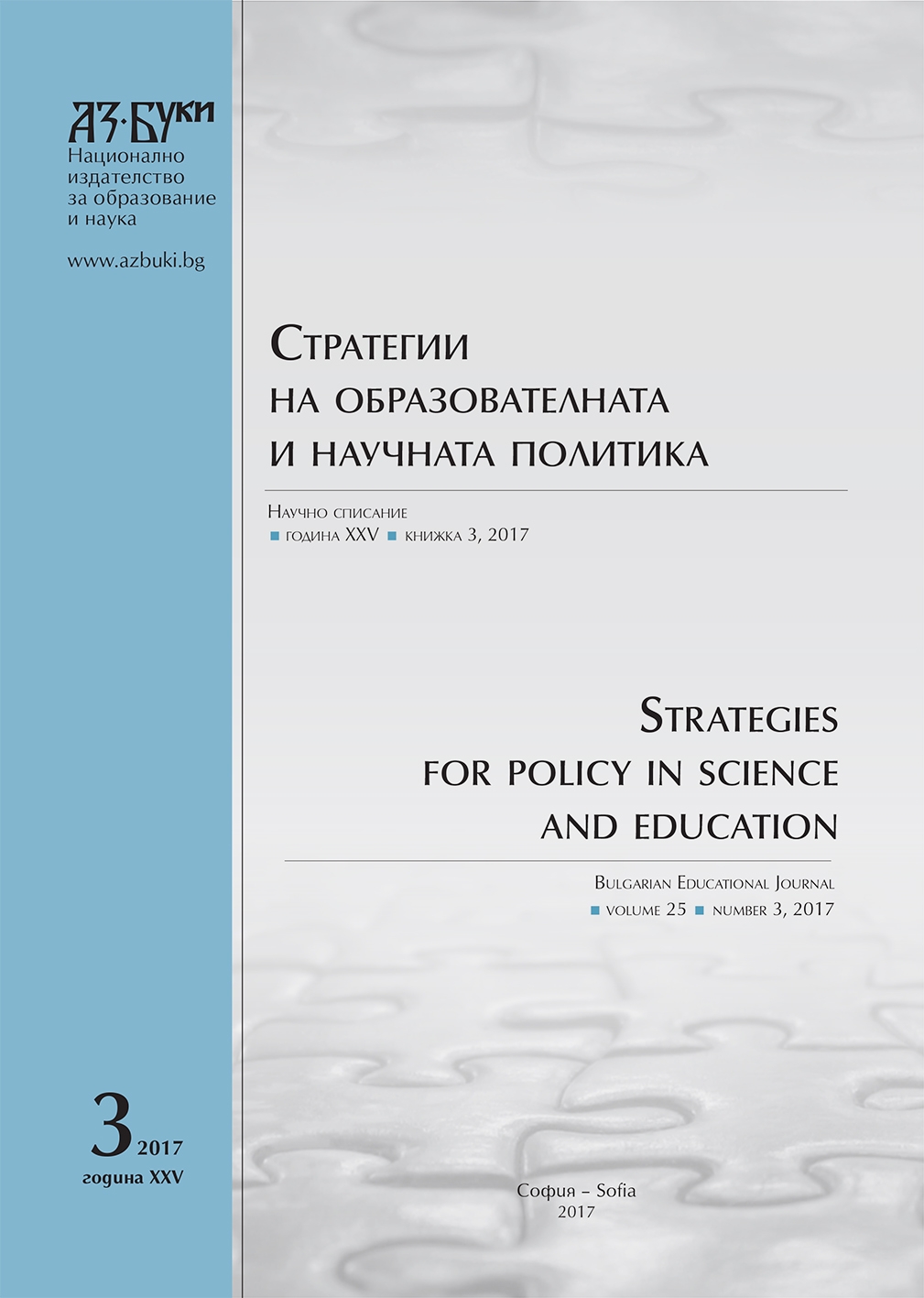Икономически теории и българската образователна политика в сферата на финансиране на образованието
Economic Theories Concerning Bulgarian Educational Policy in the Sphere of Educational Finance
Author(s): Vania Kastreva-MonovaSubject(s): Social Sciences, Economy, Education, Business Economy / Management, School education, Vocational Education, Adult Education, Educational Psychology, Public Finances, Accounting - Business Administration, Human Resources in Economy, Inclusive Education / Inclusion, Socio-Economic Research
Published by: Национално издателство за образование и наука „Аз-буки“
Keywords: financial management; delegated budget system; economic theories
Summary/Abstract: The creation and development of decentralized financial management of secondary education is one of the major changes concerning the Bulgarian education. The article analyzes the economic theories, on the basis of which the principles of financing the Bulgarian education are developed. With the introduction of the delegated budget system in 2008, the reform aims to transfer resources, decision-making rights and responsibilities to deliver services to lower levels of public governance. Decentralized financial management affirms and extends the financial and economic autonomy of the school as an important prerequisite for improving the quality of education in Bulgaria.
Journal: Стратегии на образователната и научната политика
- Issue Year: 25/2017
- Issue No: 3
- Page Range: 231-239
- Page Count: 9
- Language: Bulgarian
- Content File-PDF

